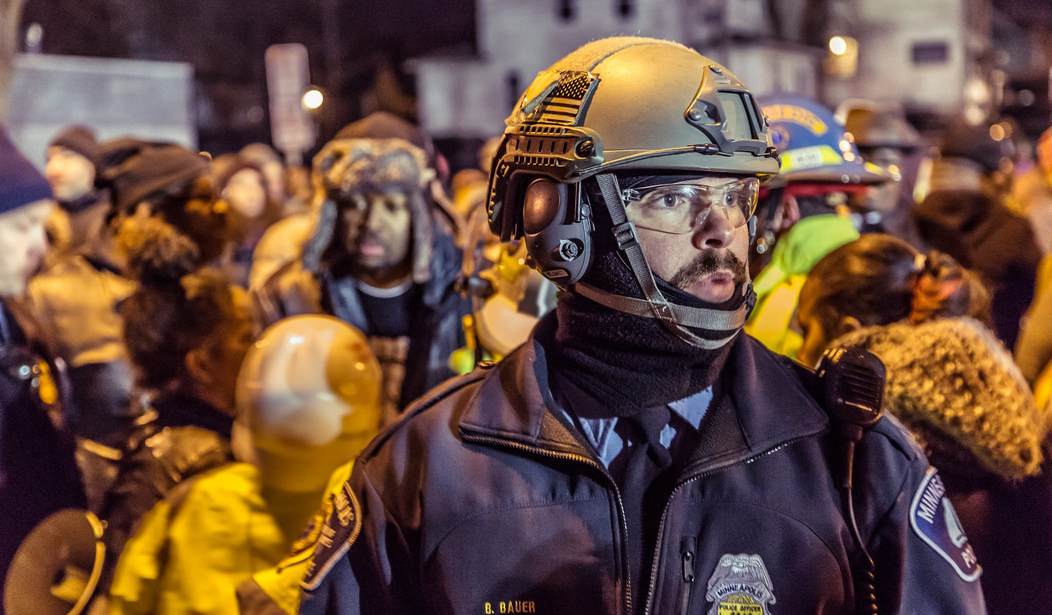Black Lives Matter Minneapolis had been chomping at the bit for any excuse to join the national fray incited after the shooting death of Michael Brown in Ferguson, Missouri. They found their cause du jour in the person of Jamar Clark, a Minneapolis man killed in an alteration with police after he interfered with emergency medical service attempts to provide care to his domestic abuse victim.
For months, Black Lives Matter Minneapolis has organized criminal activity in protest of the police. They spent 18 days in illegal “occupation” of the Fourth Precinct police station, burning fires in the street and hindering law enforcement service for local residents. They shut down the Minneapolis-St. Paul International Airport on Christmas Eve, preventing families from reuniting for the holiday. They peppered the Twin Cities area with similar disruptions and threats of disruption, all to demand a vaguely defined “justice.”
Part of their demand included a federal investigation into Clark’s death, premised on the wholly unfounded notion that local and state authorities cannot be trusted. They got their federal investigation. That investigation concluded, and the Minneapolis Star Tribune recently reported the result:
Federal authorities said Wednesday that they would not pursue civil rights charges against two Minneapolis police officers in the shooting death of Jamar Clark, a decision met with both outrage and resignation by activists who for months have demanded prosecution.
U.S. Attorney Andrew Luger, leaning heavily on whether Clark was handcuffed by police before being shot and other factors, said there was insufficient evidence to bring a federal case.
“I want you to understand that this is one of the highest legal standards under criminal law,” Luger told reporters at FBI offices in Brooklyn Center. “It is not enough to show the officers made a mistake, that they acted negligently, by accident or even that they exercised bad judgment to prove a crime. We would have had to show that they specifically intended to commit a crime.”
Critics responded almost immediately to the decision with anger, insisting the case was the latest example of the callousness of the criminal justice system toward blacks. Both officers are white, while Clark was black.
Naturally, Black Lives Matter responded with the claim that justice had not been served. Their pattern of behavior indicates that their sense of “justice” constitutes certain results, rather than a certain process.
Indeed, nearly every demand the group has made has been met, even against the advice of law enforcement policy experts. The county attorney general in charge of the case opted against using a grand jury. After deciding not to charge the officers involved, he released all the evidence used to arrive at his decision. The investigation was joined by the state’s Bureau of Criminal Apprehension, alongside the federal investigation. Basically, Black Lives Matter got everything they wanted short of a lynch mob execution of the officers. Yet none of it has been good enough.
Worst of all, Black Lives Matter Minneapolis has achieved one of their sought-after systematic reforms. A plank of their platform has been an end to so-called “broken window policing,” whereby officers crack down on minor violations in an effort to deter and detect major ones. That plank has effectively been fulfilled in recent months by an unofficial but largely recognized work slowdown by the Minneapolis Police Department. Officers, having been all but forsaken by city officials, have taken a less proactive approach to law enforcement. There has concurrently been increased crime in the city, including a series of shootings, some resulting in death.
The response from police critics like Black Lives Matter? Why, blame the police, of course. After getting precisely what they wanted, less policing, they turn around and blame the cops for the requisite increase in crime. It’s a wonder why anyone chooses to work for the Minneapolis Police Department.
At least some top city officials seem to have tired of the Black Lives Matter antics:
In statements, Police Chief Janeé Harteau and Mayor Betsy Hodges endorsed both the state and federal findings.
“We have had two thorough investigations into this matter that arrived at the same conclusion. I am satisfied with the thoroughness of these investigations, am confident in their results, and I hope the public will accept their conclusions,” Harteau said.
Both Harteau and Hodges had gone out of their way to accommodate the protesters, a stance which won them no friends on either side of the divide. The police in the field have resented being forsaken, and Black Lives Matter will be sated by nothing short of blood.









Join the conversation as a VIP Member